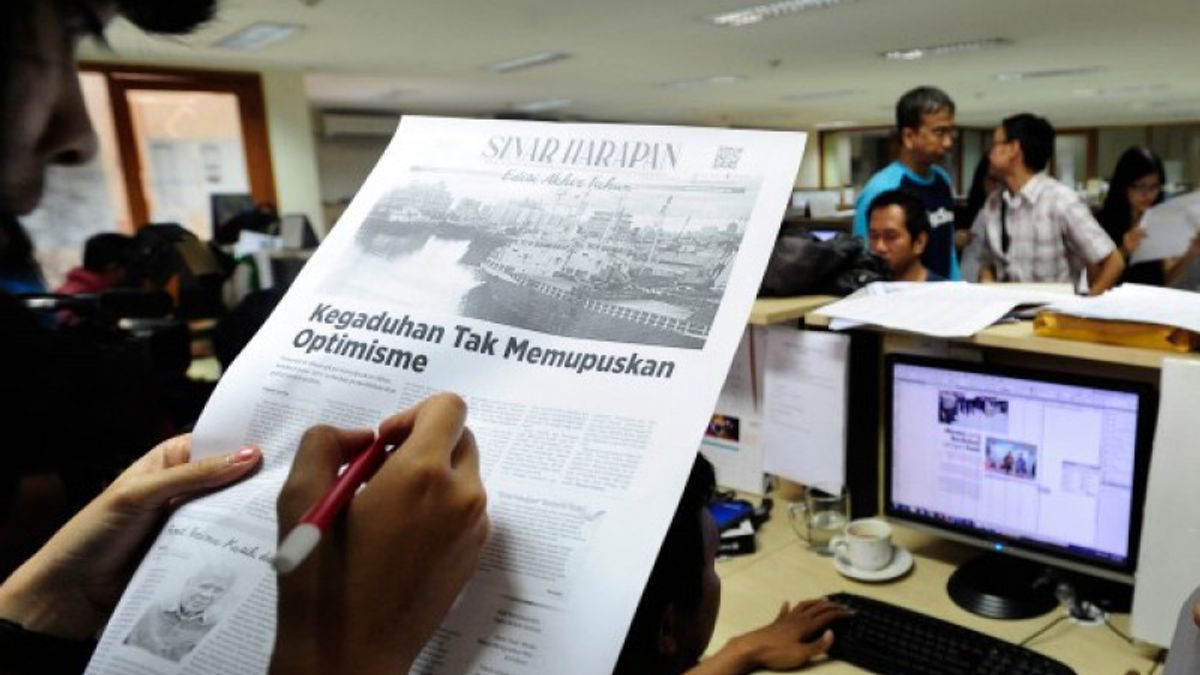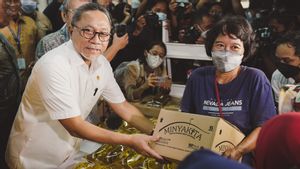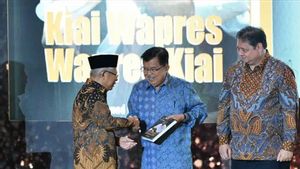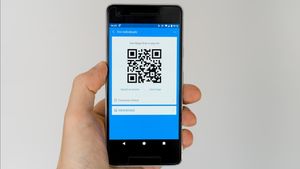JAKARTA History today, 36 years ago, October 29, 1986, the New Order Government (Orba) led by President Soeharto officially released a newspaper in the afternoon of Sinar Harapan. The education was carried out because the news and articles in Sinar Harapan created an unhealthy atmosphere. The language of ease: Sinar Harapan often criticizes the government.
Previously, Suharto and his New Order had perpetuated a repressive government. The Smile General wants the image that is perpetuated to only contain his heroism. The mass media is also controlled. Whoever contains Suharto's bad news or his government will certainly be circulated.
Regarding packaging the image, Suharto is good at it. He has the power to control everything. From rewriting history to controlling the mass media. The power owner wants his figure to be remembered as Indonesia's best leader. The dominant role of Suharto's figure appears at the uniform medium.
All this so that the Indonesian people can be inspired by the behavior of Suharto's life. The Indonesian people don't have to be afraid to dream. They can dream of becoming anyone, including the president. Moreover, Suharto himself was hailed as a figure of a village farmer's son who later became president.
This good image made the New Order try to fully control all the mass media. Alias, all media must submit to Suharto. Whether it's in radio programs, television, to newspapers. He doesn't want any media to corner him too much, let alone the New Order.
Whoever violates Suharto's wishes, the punishment is predictable: election. No bargaining for that. However, punishment will be lifted if the media owner is willing to be coached back by the government and apologizes.
The Golkar policy regarding the mass media can be said to be the derivative of Suharto's media policy, namely regulation and control. In the context of regulating and controlling this media, the role of Golkar and of course Suharto is further confirmed by the fact that Suharto has always placed his confidant in the position of Minister of Information who oversees the Ministry of Information, an institution that becomes an apparatus of state control over the media.
The role of Golkar itself in this Deppen issue also took place in stages. Initially, the Minister of Information was held by a close person like Ali Moertopo (1978-1983) who had been Suharto's Personal Assistant (Aspri). After Moertopo, the position was handed over to Harmoko, a former journalist and figure who was considered loyal to Suharto, "said Rully Chairul Azwar in the Golkar Party's communication politics book in Three Eras (2009).
No mass media has escaped the monitoring of the New Order. Sinar Harapan, for example. The newspaper tried to contain an opinion containing criticism about the devaluation which was considered speculative and suffering for the people. As a result, the New Order did not like the opinion.
Suharto also instructed the Minister of Information, Harmoko, to take firm action. The election was carried out. Sinar Harapan's Press Issuance Business Permit (SIUPP) was finally revoked on October 28, 1986.
Four days after the strengthening of the rupiah devaluation news, Sinar Harapan completed the news with an opinion written by Daoed Joesoef. He is the former Minister of Education and Culture of the New Order who once made a policy extending the study period to a year and a half in 1978. Daoed's opinion title: Critical Response to Evaluation.
"The content criticizes government policies. Daoed, among other things, called the decision to devaluate the rupiah as an inconsequential decision and he suggested that it be canceled immediately. Two news and one opinion of Sinar Harapan must have really grazed the danger, and it is true, Sinar Harapan must swallow the founding of its editors: it has been circulated. Harmoko announced that the news and articles in Sinar Harapan have created an unhealthy atmosphere, caused a commotion and disturbed the public," explained Rusdi Mathari in the book Because Journalism is Not Monopoly Journalists (2018).
The English, Chinese, Japanese, Arabic, and French versions are automatically generated by the AI. So there may still be inaccuracies in translating, please always see Indonesian as our main language. (system supported by DigitalSiber.id)










